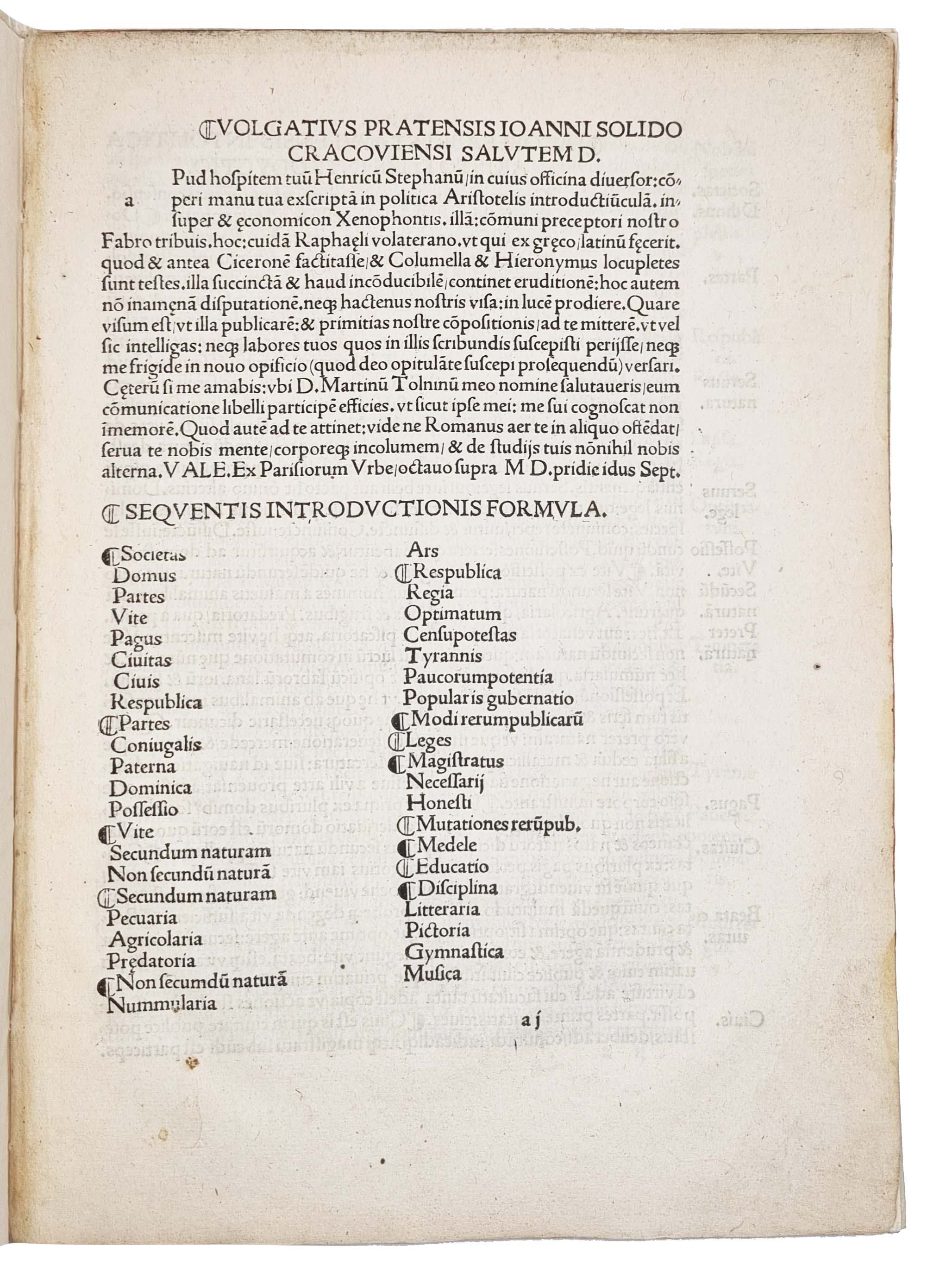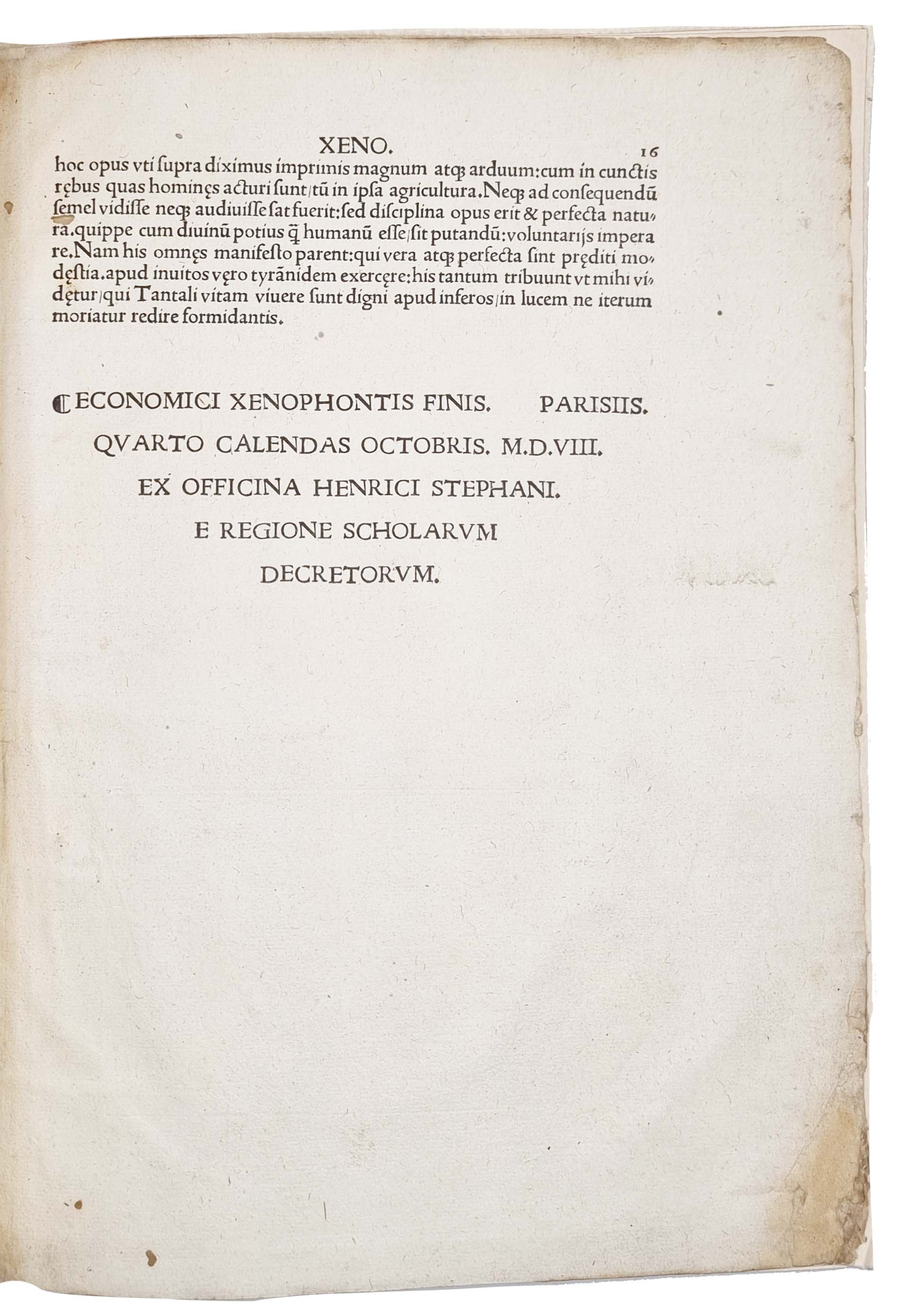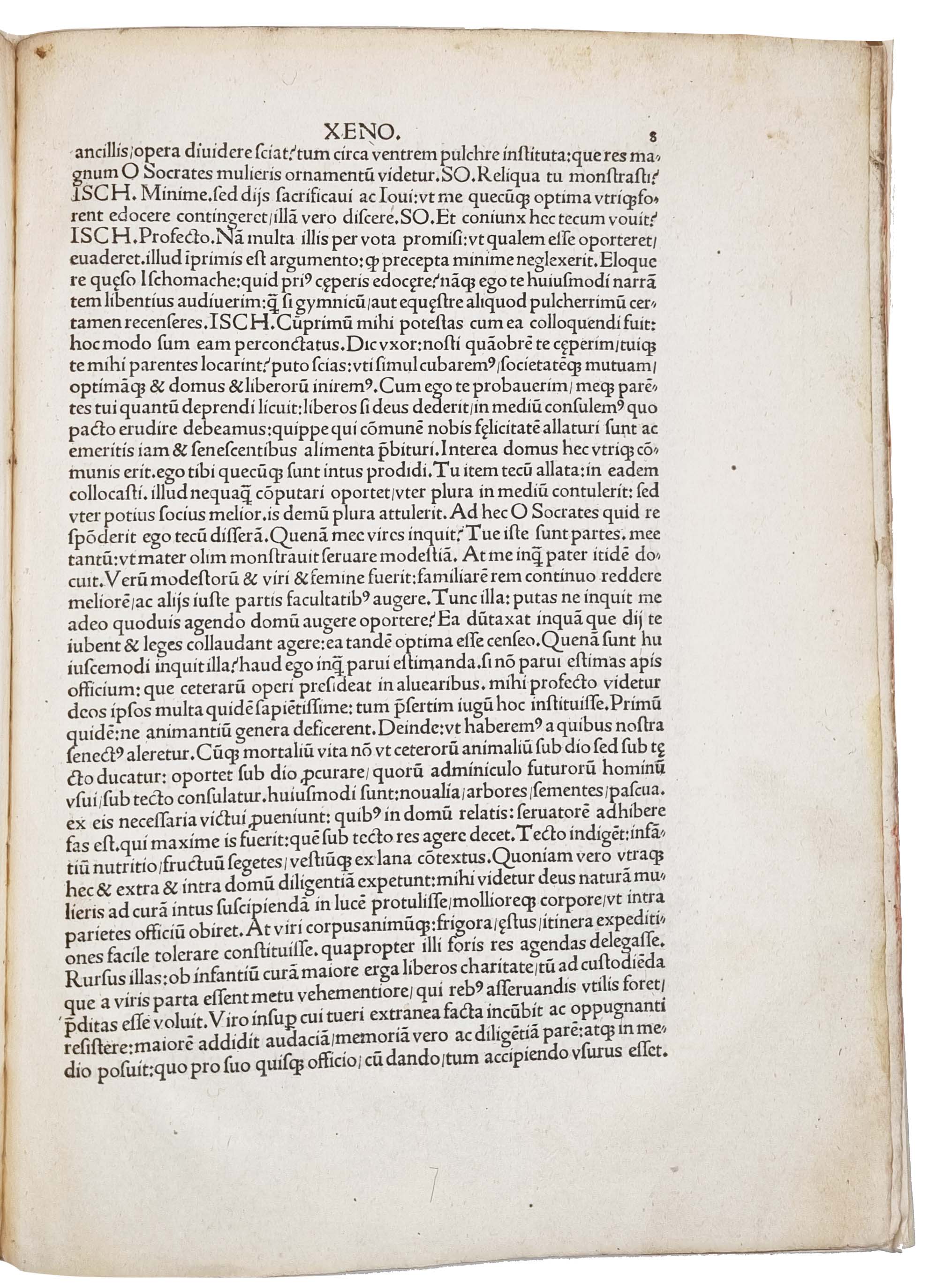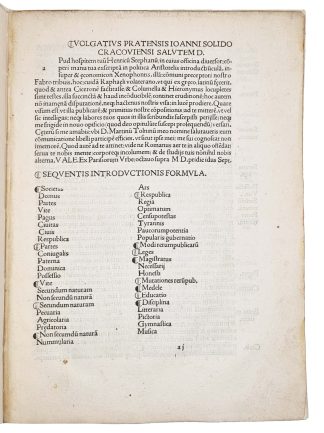LE FEVRE D’ETAPLES.
RARE EARLY ESTIENNE
In Politica Aristotelis Introductio: & Oeconomicum Xenophontis a Raphaele Volterano translatum.
Paris, Henri Estienne, 1508£3,750.00
FIRST EDITION thus. Folio. ff. 16. Roman letter. Capital spaces with guide letters. Light marginal dust soiling in places, the odd marginal thumb mark. A very good copy, crisp and clean on thick paper with good margins in modern limp vellum antique. a.e.r.
Very rare first separately published edition of Lefèvre d’Etaples important and influential introduction to the Politics of Aristotle with the Oeconomicus of Xenophon, translated by Raphael Maffeius and edited by Volgatius Pratensis, published by Henri Estienne for the University of Paris. The volume was probably intended to complement Henri Estienne’s edition of the Politics published in 1506. It is extremely rare; worldcat locates only copies of the second Estienne printing of 1512 and no copies have ever appeared for sale according to ABPC.
Lefèvre d’Etaple’s introduction to the Politics of Aristotle was the most influential and important of the period in France and firmly established Aristotelian Humanism at the heart of the French curriculum. The Oeconomicus by Xenophon, here in the second edition of Maffei’s translation (first published Rome 1506), is a Socratic dialogue principally about household management and agriculture. It is one of the earliest works on economics and a significant source for the social and intellectual history of classic Athens. Beyond the emphasis on household economics, the dialogue treats such topics as the qualities and relationships of men and women, rural vs. urban life, slavery, religion, and education. Scholars lean towards a late date in Xenophon’s life for the composition of the Oeconomicus, perhaps after 362 BC. Cicero translated the Oeconomicus into Latin. The opening dialogue is between Socrates and Critoboulus, the son of Crito, in which Socrates discusses the meaning of wealth and identifies it with usefulness and well-being, not merely possessions. He links moderation and hard work to success in household management. When Critoboulus asks about the practices involved in household management, Socrates pleads ignorance on the subject but relates what he heard of it from an Athenian gentleman-farmer named Ischomachus. In the discussion related by Socrates, Ischomachus describes the methods he used to educate his wife in housekeeping, their practices in ruling and training slaves, and the technology involved in farming. A very good copy of a most uncommon work, one of the earliest printed by Henri Estienne.
In stock





